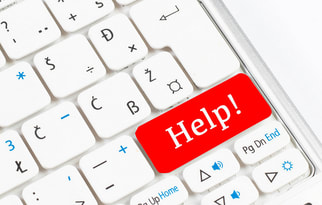|
As a clinical psychologist, I love working with people with chronic physical health conditions. It's interesting, frustrating, difficult, rewarding work - for both me and my clients! This week, I've been thinking about the things people say to me the most often, and how I usually respond. The first thing to say is that I could have written at least another ten things on this list. I've picked four things that I think are important, but that's not to say that they're the most important things, or even the most important things for you. But they're really common thought processes and things that people say to me on an almost daily basis, and I think it's important to bear them in mind. You are not a burden If I could scream this one from the rooftops, I would. So many people tell me that when they are unable to do things in the way they used to, they feel like a burden on their friends and family. Over time, that thought process can make it hard to slow down when you need to (making you feel worse if you have pain or fatigue). It can also make it difficult to do anything, as you become paralysed by the idea that nothing you do is helpful. Things can seem hopeless, and you might be snappy with other people who try to help. The thing is, being sick is not something that you're inflicting on other people. You're not doing it to spite them, or to make their life more difficult. Your loved ones genuinely want to help you to manage your health condition - if they didn't, they wouldn't stick around. But by pushing them away, you almost guarantee that both you and them will be miserable. Remember this when you're feeling low: you are not a burden. You're doing the best you can, and your loved ones are part of your team. Let them help. There are so many vultures out there When you have a chronic physical health condition, it's normal to look for a "quick fix." It's daunting to think that you might have to live with some level of pain, or fatigue, or other symptoms for the rest of your life. Into that gap, between what can be "fixed" and what needs to be "managed," are a whole host of people exploiting the natural human tendency to want to get rid of discomfort. A lot of my clients have spent a lot of money on expensive treatments that promise to cure them, and they have only ended up disappointed. Now don't get me wrong, I'm not naive enough to think that modern medicine even knows close to everything about chronic health conditions. That gluten-free, plant-based diet you're trying for your symptoms? Those magnesium supplements? That special pillow for your neck pain? Fine, go for them all, if you can afford them and they don't cause you any harm. But that faith healer who wants you to stop your medication because he's convinced he can cure your HIV? The chiropractor who says you need to see her every week for the rest of your life (and pay £££ for the privilege)? The website that sells the unlabelled "miracle drink" that has the potential to shut down your kidneys? Those aren't people who have your best interests at heart - they're only thinking about how much money they can get out of you. As I've said before, I understand the reasons people want to believe that the next thing they try will cure their discomfort - but if it sounds too good to be true, it probably is. A little is better than nothing When you have a chronic illness, your ability to do activities can vary dramatically day to day, week to week (even hour to hour!). So often it can feel like you're never doing a "good enough" job, and you can fall into thought patterns that stop you from doing things even on the good days. Thoughts like "if I can't do it all I might as well not do any of it" can mean that even when you're feeling better, you don't tackle big jobs for fear of not getting them done. On bad days, you might not even do the small things you know might make you feel better, in case it makes things worse. It's usually better to do something small, rather than doing nothing. Break it down into the smallest possible step - think minutes rather than hours - and rest as much as you need to between tasks. Even if you don't feel like you've done much, you can still be happy that you've done something - and when you have a chronic illness, that's always an achievement. It's okay to not be okay We're so accustomed to putting a brave face on. Think about the last time someone asked you "how are you doing?" and you responded honestly, rather than with the standard "good thanks, how are you?". It's quite possible that it's been a while. When you have a chronic illness, it can be even harder to acknowledge to yourself and others that you're not coping - the temptation to just "push on through and get on with it" can be very strong. Unfortunately, sometimes the responses you get from other people can also make it difficult to say how you are really feeling. I want to remind you that it's okay to not be okay. Living with a chronic health condition can be really touch, and acknowledging that you're struggling today doesn't mean that you will always struggle. It's just that today, or this week, are particularly hard. Giving yourself permission to not be okay can be an important reminder that you don't have to put a brave face on all the time, and can treat yourself a bit more kindly. If it's hard to do that around your friends and family, or you just want to talk to someone a bit more impartial, seeing a therapist can help. Do you have any other advice for people living with a chronic illness? Let me know in the comments.
0 Comments
Leave a Reply. |
AuthorDr Sarah Blackshaw: Clinical Psychologist, blogger, tea drinker, interested in dinosaurs and shiny objects Archives
January 2024
Categories
All
|
Photos from wuestenigel (CC BY 2.0), Ivan Radic (CC BY 2.0), Marco Verch (CC BY 2.0), John Brighenti, wuestenigel, simplicityhunter, Anarchimedia, Find Rehab Centers, wuestenigel, Ivan Radic, Army Medicine, kennethkonica, smallcurio, Jasmic, wuestenigel, JoanDragonfly, BrightStarPhoto21, popofatticus, wuestenigel, forthwithlife, kurotango Clip, ⍘dotism⍘, Tambako the Jaguar, One Click Group UK, Rawpixel Ltd, Blue Mountains Library, wuestenigel, mattbuck4950, h.koppdelaney, verchmarco, The Mom With a Camera, cloudplanner, wuestenigel, verchmarco, OIST (Okinawa Institute of Science and Technology), stevendepolo, juliejordanscott


 RSS Feed
RSS Feed